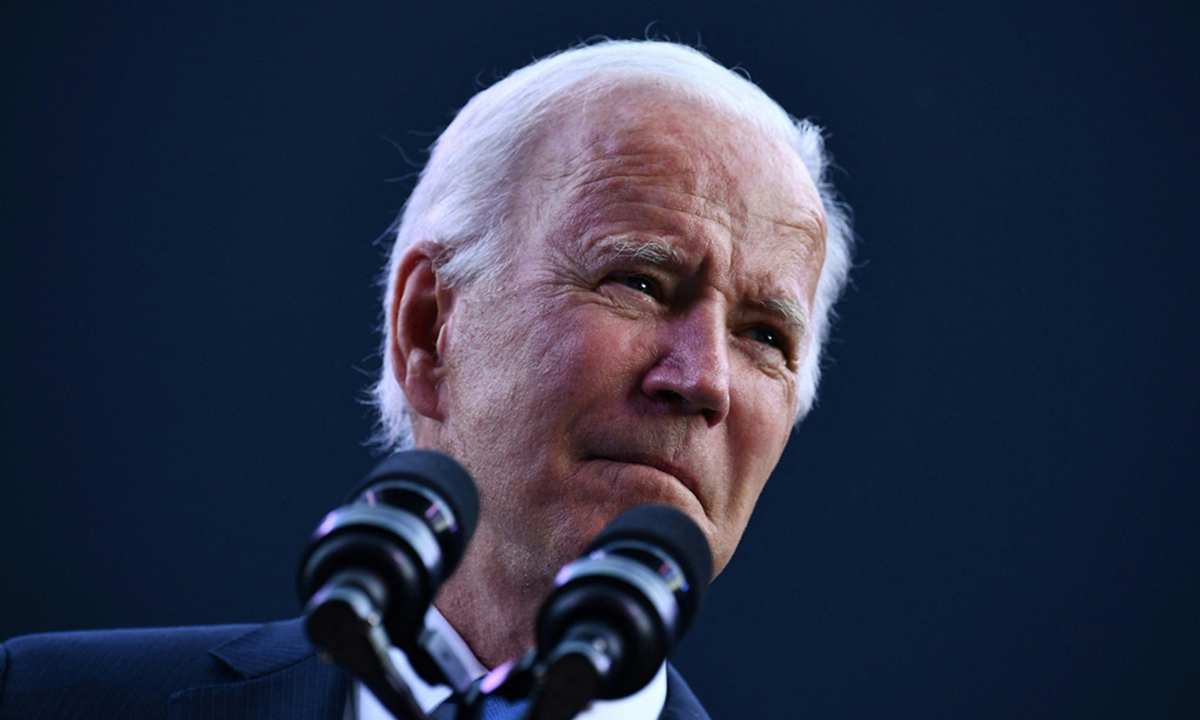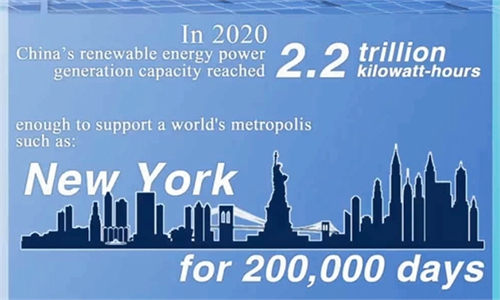Biden administration in no position to blame China, Russia on climate actions: Global Times editorial

Joe Biden Photo: AFP
US President Joe Biden said in Rome on Sunday that "not only Russia but China basically didn't show up in terms of any commitments to deal with climate change." He boasted that the US is "the most critical part" of the entire G20 summit agenda, declaring that the success of the G20 talks was largely due to "US diplomacy." US National Security Advisor Jake Sullivan on Monday labeled China as a "significant outlier" and said that the US will "keep pressing" on China.
By talking about the US, China and Russia in such a way, the Biden administration has undermined the achievements of the G20 and cast a shadow on the UN Climate Change Conference in Glasgow. Whether in terms of diplomacy or actions, Washington is not qualified to be the "leader" of the UN climate action. At first glance, their performance was quite vulgar.
The US' biggest problem on climate change is the inconsistency of its words and deeds. There is no plan for how the Biden administration's emissions reduction commitments will be promoted in the US. Once the Republican Party comes into power, it is uncertain whether the Democratic government's commitments will be overturned again. Biden's recent approval ratings decline is the largest since World War II. The possibility of Biden leading the US' long-term policy has been far below 50 percent. How can Biden and his administration "lead" global climate action if he cannot even lead his own country?
Beijing's announcement of China's carbon peak in 2030 and carbon neutrality in 2060 is a solemn promise. It has now turned into an action of the entire country. When many countries are still engaging in talks only - including the US whose words have been inconsistent - dual control has already become a hard indicator of China's economic and social development, which is reflected in all aspects.
The Biden administration's bragging and accusations show that Washington has so far failed to correct its mentality of humanity coping with climate change together. They are interested in playing a "leadership role." They are keen on pressuring developing countries to take responsibility for reducing emissions beyond their ability. Through this process, they will first place the US and its major allies on the "moral high ground" and restrain major developing countries at the same time. As to whether the goal can be achieved, they do not care.
Developed countries have emitted the most carbon dioxide into the atmosphere since industrialization. To promote the world's transition to clean energy, they must provide developing countries with large amounts of financial and technological assistance. The US has hurriedly urged developing countries to raise emissions reduction targets, but it has been slow in making funds and technological assistance available. The Paris Agreement stipulates that developed countries should provide $100 billion annually in aid by 2020. But the funds will reportedly only be in place in 2023, and it is very uncertain.
Australia is a developed country, as well as a close ally of the US. But as Australia is the leading coal exporting country, it has been holding a twisted attitude toward climate action. Canberra made a last-minute commitment without substance ahead of the UN climate summit. Before blaming China and Russia, should Biden have taunted the little brother of the US?
The issue of climate change concerns the interests of all human beings, which should have transcended geopolitics. However, when the US launches geopolitical attacks, it always names China and Russia. When it comes to climate change, the Biden administration criticized Beijing and Moscow once again. It is undermining the solidarity of UN climate action that it should have had.
The Biden administration should not show off its commitments on emissions reduction, and use it as a lever to pressure China, Russia and other countries. It should get a commitment from the Democratic and Republican parties to jointly support the promise made by the current government and give a legal mechanism that it will not be overthrown by a new government.
The US government needs to clearly tell the world how their emissions reduction commitments will be implemented as a national industrial policy. They cannot use lip service in exchange for real efforts by other countries.


